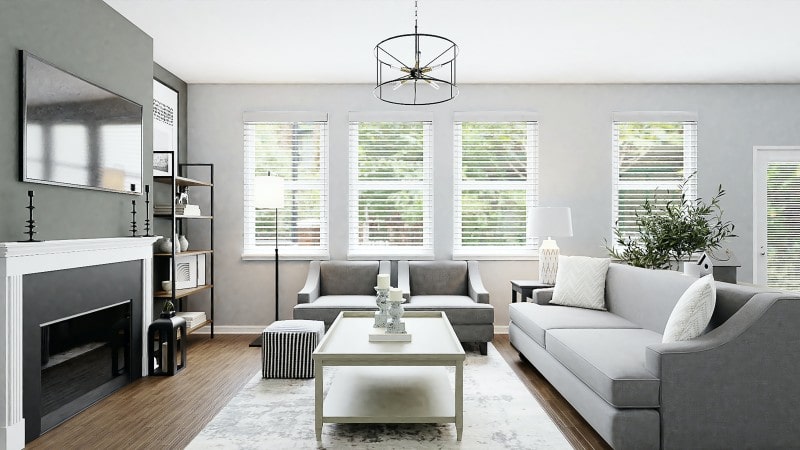As a property investor, you are probably familiar with rental properties, but apartment buildings might be new territory. Many families live in apartment buildings. Apartment buildings have several living spaces, each with a kitchen and bathroom, in one building. Note that the term “family” is used broadly here to include couples and neighborhood groups. The most common form of investment in multi-apartment real estate is a residential complex or condominium. They range from two-family homes to hundreds of high-rises. When investing in apartment real estate, there are several key points to consider. To help you navigate the complexities, consult a professional, like real estate agents in Saint Paul, MN. With their expertise, you can responsibly invest in larger residential complexes.
Advantage 1. Cash flow
Even if there are vacant units in an apartment building, you may have cash flow from other customers. However, before investing in an apartment building, do your due diligence and consider your investment strategy, and its effectiveness with the services of Minnesota real estate agents. Consider the market value of the unit to determine if the rental income exceeds the net operating expenses, which include mortgage payments, insurance, taxes, property management, and capital maintenance of the home. If the answer is yes and the property is in a strong rental market that can fill vacancies quickly, you can expect steady cash flow.
Advantage 2. Easy Financing
Lenders view apartment complexes as a more reliable investment. For example, if you have four apartments and a tenant suddenly moves out, your rental income will only decrease by 25%. If the same thing happened with a single rental unit, there would be no income during the hiatus period, creating a greater risk for the lender.
Advantage 3. Scalable solution
Apartment complexes and condominiums open the doors to commercial real estate. Large single-family properties are classified as commercial real estate and offer even more lucrative cash flow opportunities from renting out your purchased property. Once you have your foot in the door, you can start scaling your investments.
Advantage 4. Tax benefits
Investing in multi-family real estate offers attractive and beneficial tax benefits. You can deduct many service costs, such as utility bills, property management fees, maintenance fees, repair fees, insurance, and marketing expenses. Even if the property’s market value technically goes up, you can still enjoy the long-term tax benefits of ownership.
Advantage 5. Passive income
Investing in real estate in the actively developing real estate market is the most profitable key way to receive passive income. Investing in multifamily properties requires very little day-to-day operations if you trust the maintenance and communication of a property management company. This means you get more time to focus on your day-to-day work, while the property works for you.
Advantage 6. Simplicity and clarity
Investing in multi-family homes is relatively easy compared to investing in commercial real estate. You can buy multiple properties with a single loan (instead of taking out a loan for each house), and an insurance company that is familiar with the property will draw up a legal contract for you.
Three key risks of investing in multi-apartment real estate
Investing in multifamily real estate has many valuable benefits, but there are key reasons why it may not be the solution for everyone.
- Risk 1. Increase in purchase costs: As profitable as renting apartment buildings may be, the high initial costs are undeniable. Therefore, investing in multi-apartment real estate is too expensive for many investors.
- Risk 2. High Competition: The apartment realty market is full of experienced investors. Prices continue to rise as developers and property managers compete for the same building or lot. Some investors may even buy for cash, making it difficult for newcomers to enter the market.
Investing in any type of real estate can be a profitable opportunity, but it’s important to consider the different options. Besides investing in apartment complexes, you can investigate residential, commercial, or undeveloped land.

Residential real estate offers a variety of investment options, from apartments to country houses. For the best return on investment, consider buying in new developments and decide whether to rent or sell in the future. Commercial real estate is leased directly to its owner and profitability depends on market factors and individual investors. The profitability of commercial real estate depends on many key factors, both for the general market (such as rental prices and the balance between supply and demand) and for individual investors. A professional appraisal can help identify risks and increase capital. Buying land is a long-term passive investment with a return of 6-7%, but it’s important to understand the complexities and legal details. For beginners, experts recommend expensive new buildings in the primary housing market, which offer high profitability and quick payments with a guarantee of preserving financial deposits.
Where is it better to invest money in luxury or cheap real estate?
When deciding whether to invest in luxury or budget real estate, it’s important to choose the right properties. Just because an apartment is in a new budget building doesn’t guarantee a profitable investment. Demand for these homes varies widely depending on the location and can often be in remote areas with poor infrastructure, making it hard to sell or rent at market value. Investing in real estate in the city center is often a better choice since this location is unlikely to lose its prestigious status, making it easier to sell or rent at a premium price.
Luxury real estate is a specialized segment of the market with different dynamics from the budget sector. Investors in economy-class buildings are constantly competing with each other, and new projects keep popping up, which can drive down prices. In contrast, the elite segment targets a narrower consumer base, so prices for apartments in elite residential complexes are more likely to increase over time. To make a wise investment decision, it’s essential to work with an experienced real estate market expert who can help you navigate the complexities of the industry.



